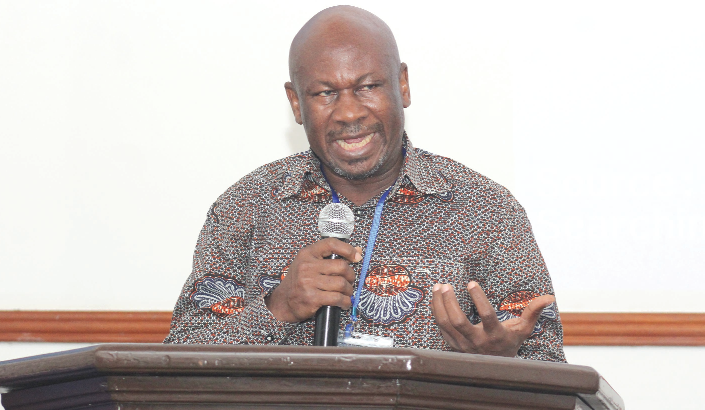
Ignite self-help spirit in citizens - STAR Ghana Foundation urges CSOs, media
The Executive Director of STAR Ghana Foundation, Ibrahim-Tanko Amidu, has urged civil society organisations (CSOs) and the media to ignite the self-help spirit in citizens to facilitate the accelerated development of the country.
He said given the prevailing economic challenges in the country leading to the ongoing negotiations with the International Monetary Fund (IMF), it had become necessary to adopt what he described as “local philanthropism or community giving towards financing local development programmes”.
“Going to the IMF should not be a permanent solution to our economic problems, it is a short-term solution which is likely to come with cuts on government budget and the ability to provide social services," Alhaji Amidu added.
He was speaking at a two-day Giving for Change (GfC) annual learning event organised by the foundation in Accra last Thursday.
It was aimed at examining the legal and regulatory environment to strategise for a coordinated influence by CSOs to create an enabling environment for local philanthropism.
The GfC is funded by the Dutch Ministry of Foreign Affairs, with the foundation as the anchor institution for Ghana, and the West Africa Civil Society Institute (WACSI) as a strategic partner. It is being implemented in Africa, Asia and South America.
Significance
Alhaji Amidu said high-profile individuals and the private sector could be brought together to achieve the purpose of providing quality education and health care for people in deprived communities through the concept of local philanthropism.
He said this would ensure that despite the prevailing economic crisis and budget cuts, “our country's development process will continue”.
“In these days of dwindling donor aid and economic shocks, one of the most sustainable ways of financing development is through local philanthropism," Alhaji Amidu added.
He said local philanthropism which was underpinned by traditions and culture was not new in the country, and, therefore, encouraged people to help their neighbours and relatives in times of need and emergencies.
“We need to have that very difficult conversation about why after 60 years of Ghana’s independence we are still operating the kind of economy we inherited from our colonial masters” Alhaji Amidu said.
E-levy
The Results and Learning Manager of STAR Ghana Foundation, Frank Amoateng, said one of the key challenges affecting the implementation of the GfC was the electronic transfer levy (E-levy) which imposed a 1.5 per cent charge on transactions above GH¢100.
He said over the past two years of the implementation of the GfC, it had led to the formation of three communities of practice (CoP) in the northern, southern and central parts of the country as a mechanism of promoting learning and also building solidarity on local philanthropy.
Mr Amoateng added that the programme had supported key initiatives, including the provision of information communication and technology (ICT) learning tools for the Cape Coast School for the Deaf and Blind.
